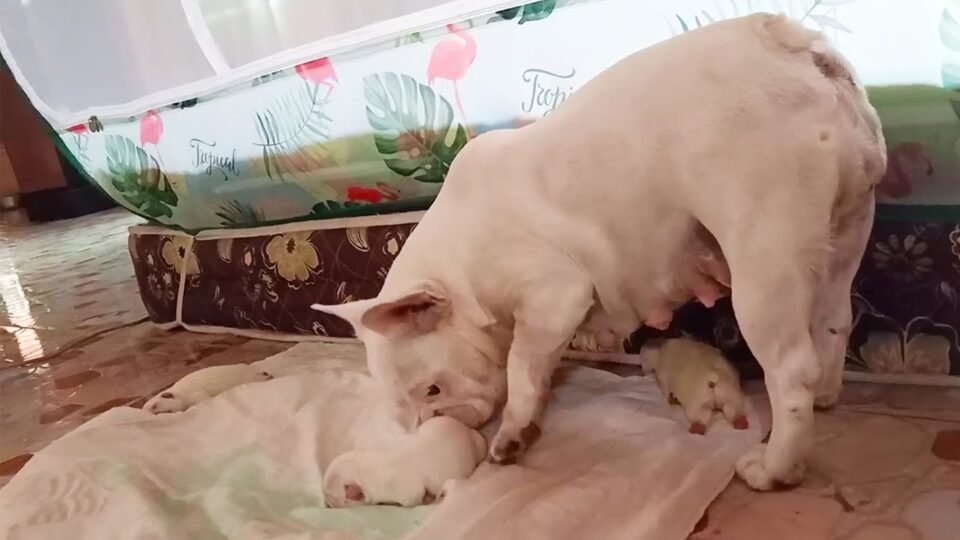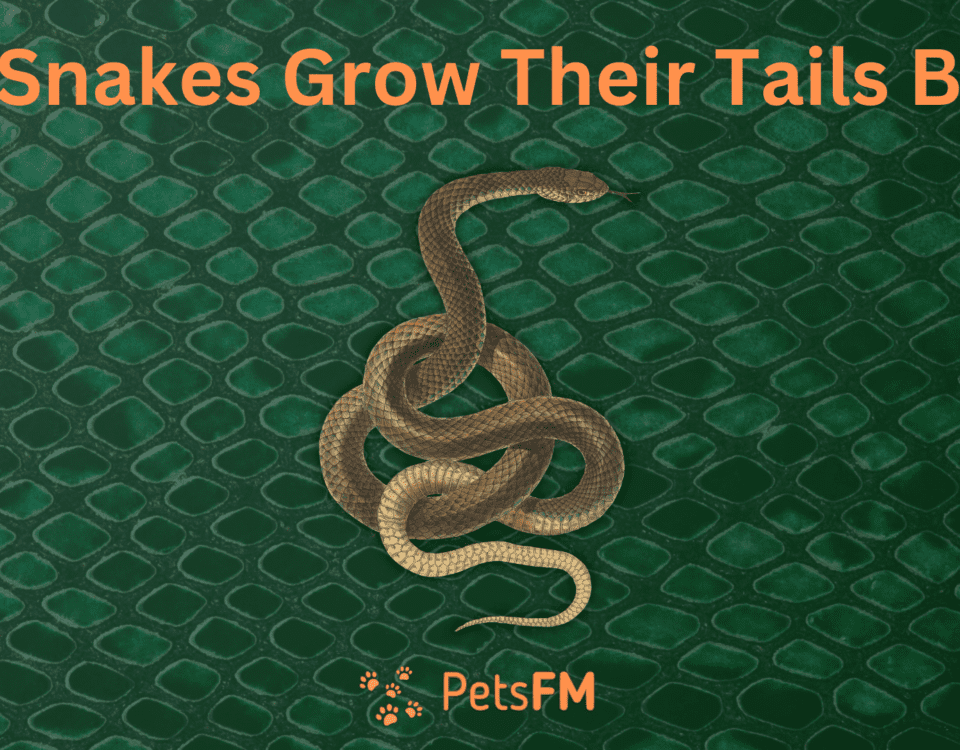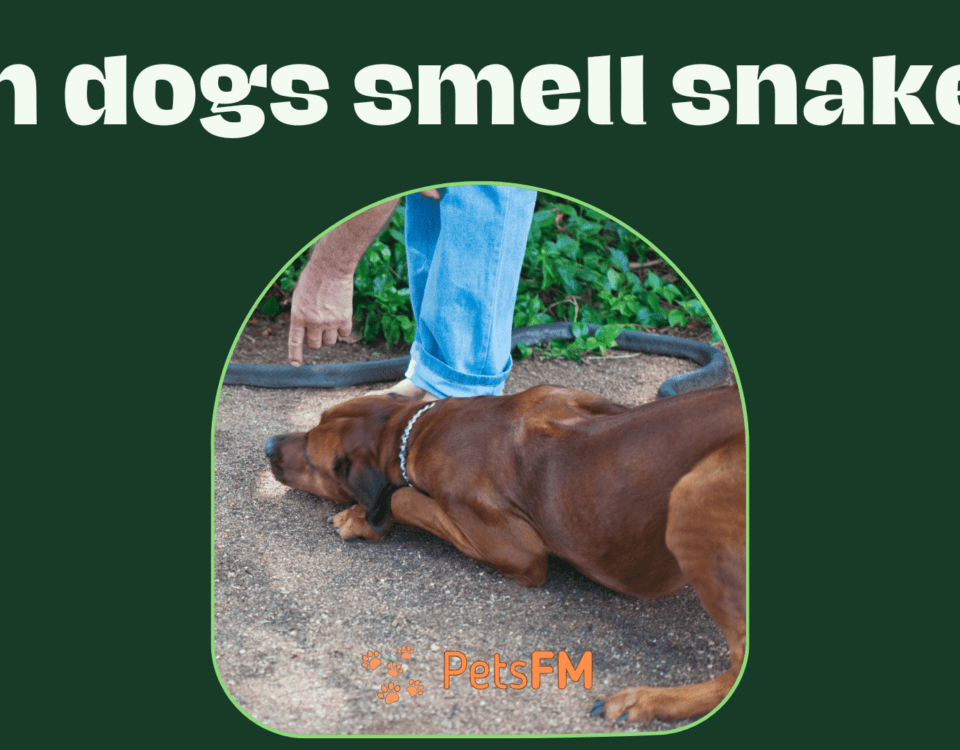


How To Prevent Cat’s Biting and Humping Behavior?
December 29, 2023


18 Cat Breeds With Very Long Legs – Comprehensive Guide
December 30, 2023Observing a mother dog gently carrying her puppy in her mouth can be unsettling yet intriguing. This behavior, often seen as alarming and baffling, is normal and instinctual in dogs.
The mother dog does this primarily to ensure the safety and security of her puppy. It’s a common method for her to transport the pup, especially by holding the puppy’s head in her mouth, which allows for easier and safer movement. Additionally, this behavior can be driven by the mother’s concern for the puppy’s warmth and protection.
So, when you see a mother dog carrying her puppy in her mouth, remember it’s an instinct and a sign of her caring for her young. If you’re curious about this behavior and want to understand why dogs do this, exploring further information on the topic can be enlightening.
Understanding Maternal Instincts in Dogs
Before exploring why mother dogs carry their puppies in their mouths, it’s essential to understand the broader range of their maternal instincts. These instincts encompass behaviors like nesting, grooming, feeding, and teaching, all crucial for the puppies’ survival and development.
From preparing a safe birthing space to nursing and socializing their young, a mother dog’s actions are driven by a deep-rooted instinct to nurture and protect her litter. Recognizing these behaviors helps us better appreciate the complex nature of canine maternal care and provides context for the specific actions discussed in this article.
Related Read: Can Dogs Eat Birds? Is It Safe & What To Know!
Why Does My Dog Keeps Putting Its Puppy In Its Mouth?
As a pet owner, it might be pretty startling to witness, but there are several reasons why your dog frequently carries her puppies in her mouth:
1: The Mother Dog Is Over-Stimulated
If your dog is experiencing overstimulation, she might feel the need to relocate her puppies. This can happen if she becomes anxious about the environment, like excessive foot traffic around her nesting area.
Her response to this stress could be to move her pups to a more tranquil location.
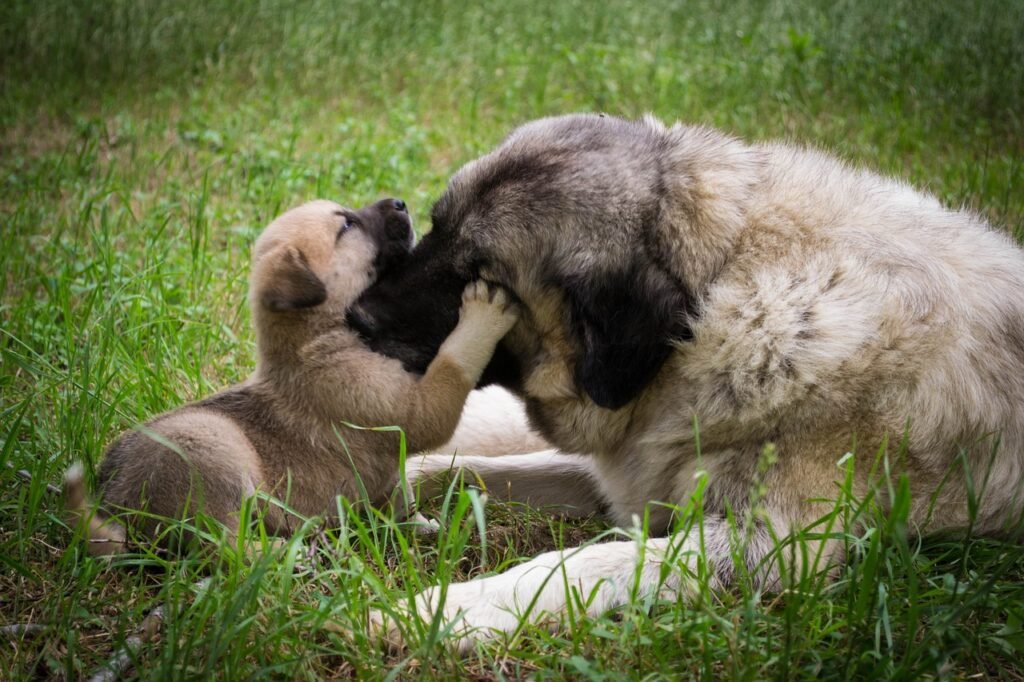

The Mother Dog Is Over-Stimulated
2: She Trying To Discipline Her Pup
A mother dog often disciplines her puppies using a technique known as a muzzle grab. This involves gently placing part of the puppy’s head in her mouth as a form of correction and teaching.
It’s a natural way for her to guide and control her pup, particularly when they’re overly energetic. Despite the seemingly harsh method, mother dogs are adept at doing this safely without causing harm to their young.
3: She Wants Her Pup To Be Safe
A mother dog may carry her puppy in her mouth to ensure their safety, moving them to a more secure location if she senses danger. This behavior is especially common if a puppy wanders away from the litter.
By bringing them back to their designated area or keeping them close, the mother dog fulfills her parental duty to protect and maintain the safety of her litter.
4: She Wants Her Pup To Be Warm
When puppies have low energy, it often indicates they’re not warm enough, needing a body temperature of around 97°F. If too cold, they struggle to nurse. A helpful solution is to warm a rice-filled sock in the microwave and place it in the nest.
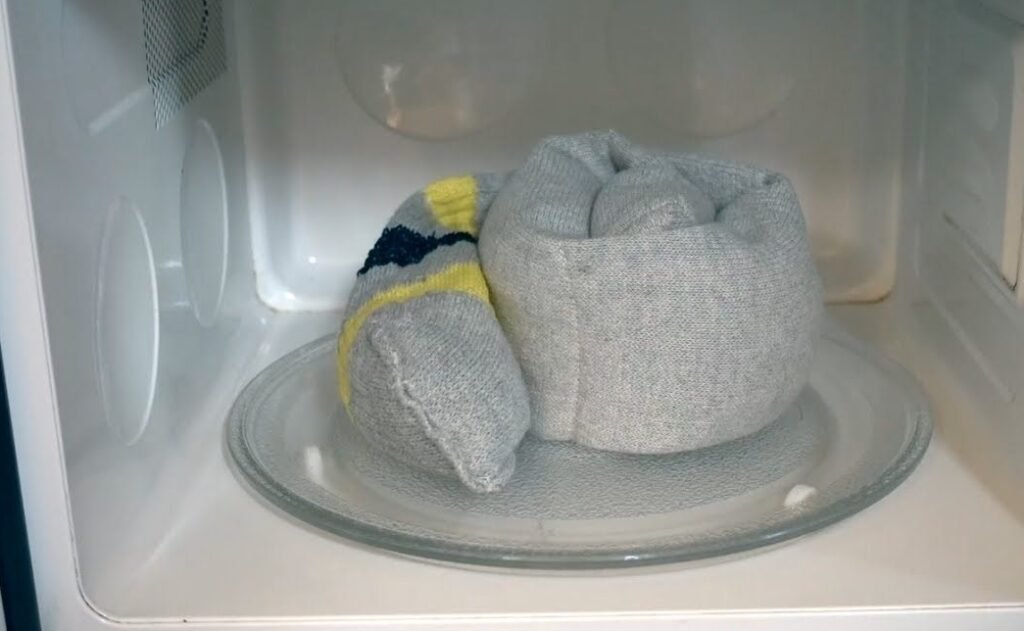

Warm a rice-filled sock in the microwave
This provides a consistent warmth source when the mother can only warm one puppy at a time. It’s crucial, as puppies can’t shiver for warmth until about two and a half weeks old.
5: She Is Just Being Playful With Her Pup
On a different note, a mother dog might also pick up and carry her puppies in her mouth as a form of playfulness, aiming to bond with them.
It can be tricky to distinguish between playful behavior and aggression. Still, if she gently carries her puppies this way, it’s often a sign she’s engaging in a teaching moment about play.
6: The Pup Might Be Sick
Your dog might instinctively isolate a sick puppy from the litter, identifying it as the most vulnerable. This natural yet harsh behavior is her way of focusing resources on the healthier pups more likely to thrive.


You can provide care by feeding the ailing puppy with specialized formula at pet stores. As your dog’s caregiver, you play a crucial role in nurturing the puppy’s growth and survival.
If the mother dog rejects her sick puppy, consulting with a veterinarian is advisable for guidance on how best to assist.
7: She May Be Harming The Pup
If your dog appears stressed or threatened, possibly due to excessive noise or other disturbances, she might react as a protective measure by carrying her puppy in her mouth. However, in her anxious state, she could unintentionally harm the puppy.
This behavior can sometimes stem from a lack of strong nurturing instincts. In such situations, it becomes necessary for you as the owner to intervene and care for the puppies, ensuring their safety and well-being until they are more self-sufficient.
8: She Wants The Pups To Be Clean
Your dog might perceive the area designated for her and her puppies as insufficiently clean, possibly due to mess from the birthing process or the puppies themselves.
In response, she may move her puppies to a cleaner and more appropriate location for raising them. This behavior is her way of ensuring a hygienic and suitable environment for the care and nurturing of her young.
Is There A Way To Stop The Dog From Picking Up Her Pup?
To address the issue of your dog not caring for one of her puppies, proactive steps are necessary for the pup’s survival. One approach is to move her whelping box to a different location, which might make her feel more comfortable and inclined to care for all her puppies.
Additionally, using a pheromone collar on your dog could help. Pheromone collars are designed to release calming scents that can reduce stress in dogs. This might help soothe your dog and encourage her to nurse and attend to her puppies more attentively.
The Role of Human Caregivers in Supporting Maternal Canines
In the journey of nurturing a mother dog and her puppies, the role of human caregivers is vital. It involves creating a safe and comfortable space for nursing, ensuring the mother has access to nutritious food and plenty of water to support her health and milk production, and providing regular veterinary care.
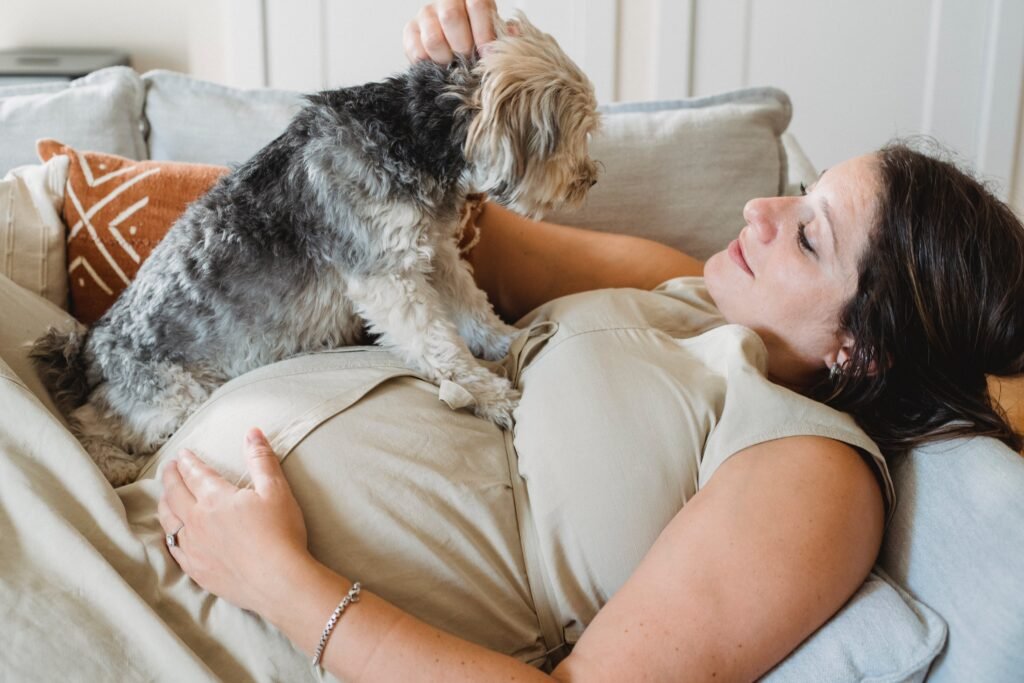

Caregivers also play a crucial role in the early socialization of puppies, introducing gentle human interaction while respecting the mother’s space and instincts. Balancing these elements of care, support, and space is key to the health and well-being of both the mother and her litter.
What Causes A Mother Dog To Bite Her Puppies?
Mother dogs occasionally nibble or gently bite their puppies as part of disciplining and teaching them acceptable behaviors. This is not aggressive but a natural way to guide their young, ensuring they understand boundaries and social cues within the pack.
It’s a critical aspect of puppy development, helping them learn limits and appropriate responses from an early age.
What’s The Reason Behind My Dog Bringing Her Puppy To Me?
When a mother dog presents her puppy to you, it’s often a gesture of deep trust and regard. She may seek your involvement in the puppy’s upbringing, acknowledging your role in their care.
This behavior can also indicate her desire for social interaction or approval, showing she values your presence and sees you as a part of her extended family or pack.
Why Does My Dog Continually Hide Her Puppies?
Her strong protective instincts typically drive a mother dog to hide her puppies. She may perceive even familiar environments as potential threats to her vulnerable litter. This behavior is how she safeguards her puppies from danger and ensures their safety.
It’s a primal instinct, reflecting her commitment to the well-being and security of her newborns, especially in new or uncertain situations.
Conclusion
Your dog carrying her puppy in her mouth can signify various natural behaviors, including moving them to a safer location, disciplining them, or shielding them from perceived dangers.
Additionally, when your dog brings her puppy to you, it could be an expression of pride or a desire to share her joy. While these behaviors are generally normal, they can sometimes indicate that your dog is experiencing stress.
Observing the context and frequency of these actions is essential to understand your dog’s well-being and needs better.
